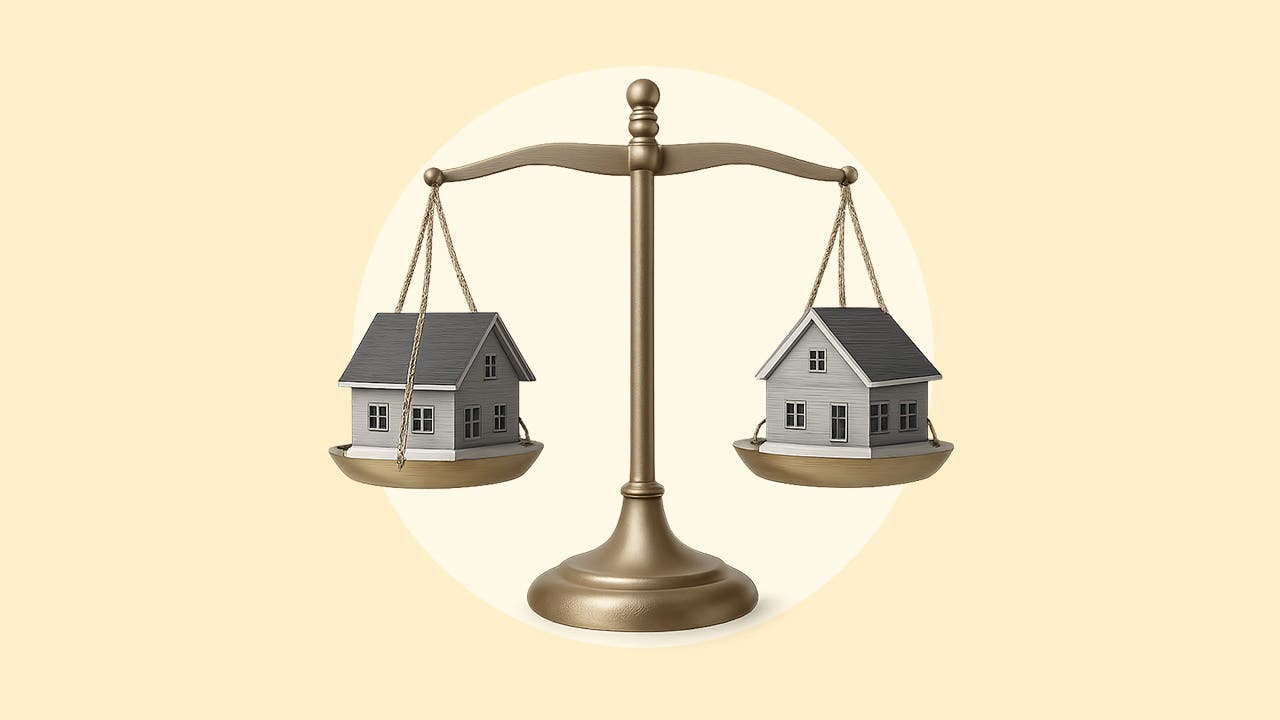National vs. local mortgage lenders: Which is right for you?




Key takeaways
- National mortgage lenders provide home loans throughout the country and tend to offer various options, but may lack personalized service and charge higher fees.
- Local mortgage lenders finance properties in a specific geographic location and often provide more personalized service, but may have limited loan offerings.
- When choosing a lender, consider factors such as customer service, the type of loan you need and interest rates.
Buying a home is a major financial decision, and if you’ll need financing to help fund the purchase, you’ll have to choose a mortgage lender. Assessing the differences between national and local lenders can help you select the right type of mortgage lender for your needs. Here’s what you need to know.
National vs. local mortgage lenders
National and local mortgage lenders have their strengths and weaknesses, and understanding their differences can help you find a lender that aligns with your needs.
| National lenders | Local lenders | |
| Availability | Nationwide | Limited to specific regions |
| Loan products offered | Typically offers various mortgage options | Might offer fewer options |
| Service | Might be less personalized | Known for a more personalized experience |
| Examples | Often a big bank or online company | Often a community or local bank or credit union |
National lenders
As the name indicates, national lenders work with aspiring home buyers located all over the U.S. It could be an online-only lender or a large national bank. Some of the most well-known national lenders include Bank of America, U.S. Bank and Rocket Mortgage.

Pros
- Extensive range of loan options
- Offer mortgages to qualified individuals nationwide
- More likely to have extended customer service hours and more online features

Cons
- Might not get the personal touch that local lenders offer, as you are likely to be part of an assembly line
- Potential for more fees than local lenders, resulting in higher interest rates or closing costs
- Emphasis on handling large volumes of loans might make them less flexible when providing tailored client solutions
Local lenders
A key feature of local lenders is that they provide mortgages within a specific geographic region. Known for their personalized service, the loan officers at these lenders have a deep understanding of the local housing market, which enables them to offer tailored loan programs for first-time homebuyers or those with complex financial circumstances.
Because these lenders are local to your area, that means you can enjoy face-to-face interactions with a loan officer to help walk you through the mortgage process. Examples of local lenders include a credit union or community bank.

Pros
- More personalized service allows you to interact directly with industry professionals and potentially get a deal more tailored to your financial situation
- Loan officers know the local housing market
- Often offer lower interest rates than national lenders

Cons
- Only operate within certain geographic areas, which won’t work if you are moving out of state
- Might not have as diverse a range of loan options as their national counterparts
- Might not have the same extended customer service hours as a national lender
You can read about one Bankrate editor’s experience in choosing a lender, and why she opted to go with a local institution — specifically a credit union — to get her mortgage.
Is the application process different for local and national lenders?
Differences in mortgage applications relate more to the loan type, rather than the lender. If it’s a qualified loan, the lender has to abide by specific guidelines set by the Consumer Financial Protection Bureau. And if the lender wants to sell the loan on the secondary market easily, it must conform to criteria set by the Federal Housing Finance Agency (FHFA). Both establish standards for applicants to meet and checks the lenders must do to ensure the borrower’s ability to repay.
That said, when it comes to the underwriting process, there can be differences between how national lenders and local lenders evaluate you. Many lenders — both national and local — use automated software that quickly assesses your financial information and credit history to determine your eligibility for a mortgage.
But local lenders may be more likely to also engage in manual underwriting (done by a human), especially for borrowers with unique financial situations or properties that don’t fit typical guidelines. This can lead to a more personalized experience, but it can take longer. In contrast, national lenders might be more efficient and streamlined in handling your application, but more rigid in their criteria.
“The application is the same, but here’s what’s different: When your file gets stuck, national lenders make you call a 1-800 number and explain your situation to whoever picks up. Local lenders? Your loan officer probably has the underwriter’s cell phone number,” says Bri Lees, vice president of Marketing at Novus Home Mortgage.
National vs. local lenders: Which is right for me?
Choosing between a national and local mortgage lender depends on several factors. If you prefer a more personal touch and insight into the local market, a local lender could be the right choice for you. However, if you value a wide range of loan options and broad accessibility, a national lender might be more suitable.
If you're the type who reads the manual and figures things out yourself, go national. If you're the type who wants someone to walk you through it, go local.— Bri Lees, Vice President of Marketing, Novus Home Mortgage
To make the decision, evaluate your need for personal interaction, compare mortgage rates and reviews and consider the type of loan you need.
“Ask yourself: When you have a problem, do you prefer calling a 1-800 number or walking into someone’s office? Because that’s essentially what you’re choosing between,” says Lees. “If you’re the type who reads the manual and figures things out yourself, go national. If you’re the type who wants someone to walk you through it, go local.”
Next steps on finding the best mortgage lender
When searching for the best lender — either a national lender or local lender — cost is important, but so are your needs and preferences.
Some ways to narrow down your options include:
- Consider your credit. If your credit score could use improving, look into lenders who have options for low-credit score borrowers or those who don’t fit the standard financial profile.
- Compare quotes from multiple lenders. Studies show that shopping around for a mortgage could save you thousands.
- Pay attention to how lenders communicate with you. The right lender shouldn’t be difficult to work with. The best lenders can answer your questions promptly, are easy to reach and keep you updated throughout the process. The right lender won’t hit you with a hard pitch, either.
- Weigh the extra costs. Many lenders charge an origination fee and an application fee, to name just a few. Or they bump these charges up, to compensate for “discounts” elsewhere. Take this into account when shopping around and comparing offers.
Frequently asked questions
Why we ask for feedback Your feedback helps us improve our content and services. It takes less than a minute to complete.
Your responses are anonymous and will only be used for improving our website.
You may also like

What is a bank statement loan?

Online lenders vs. banks and credit unions: Which is better?


